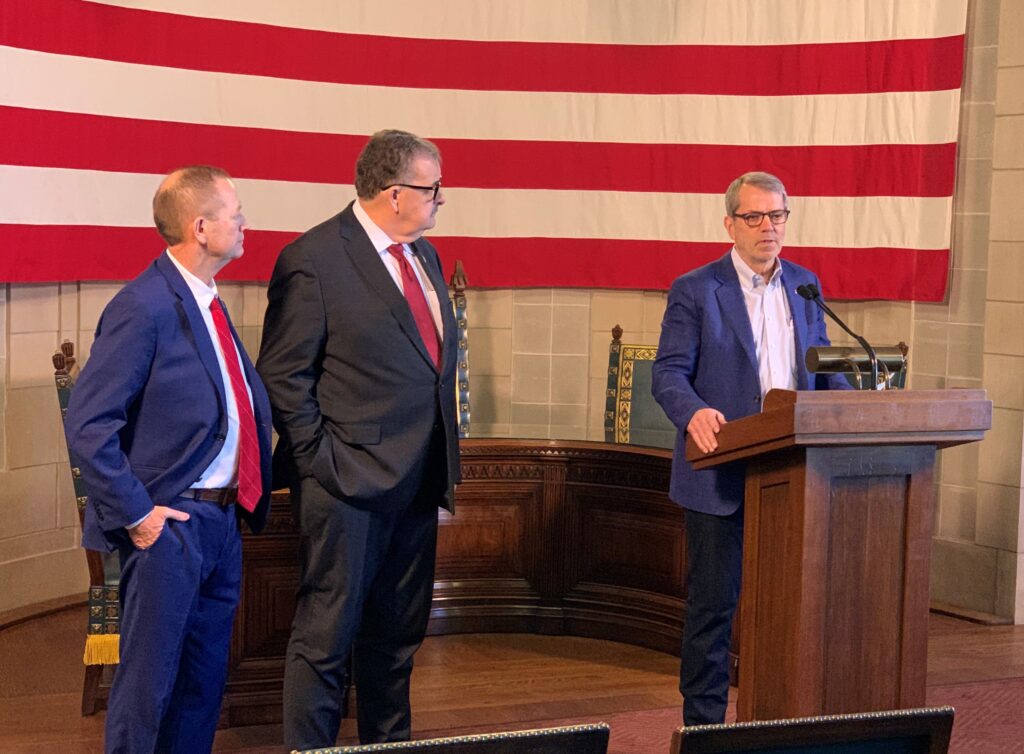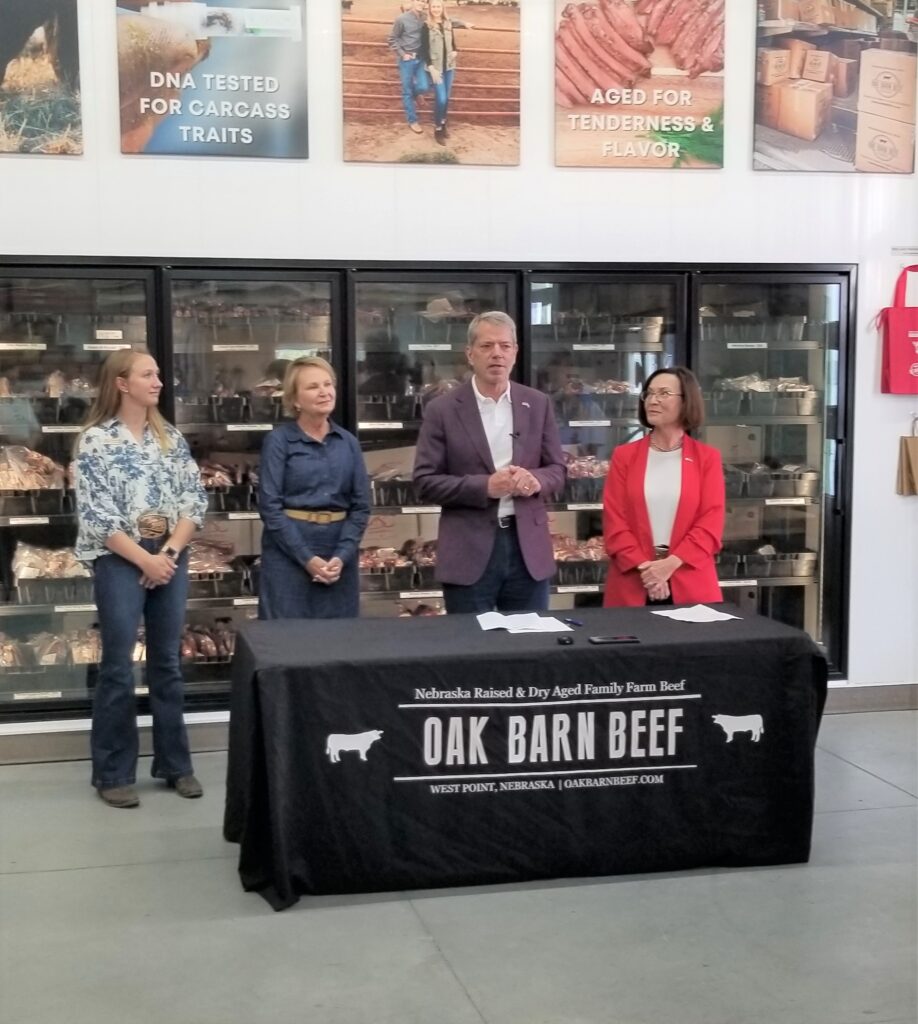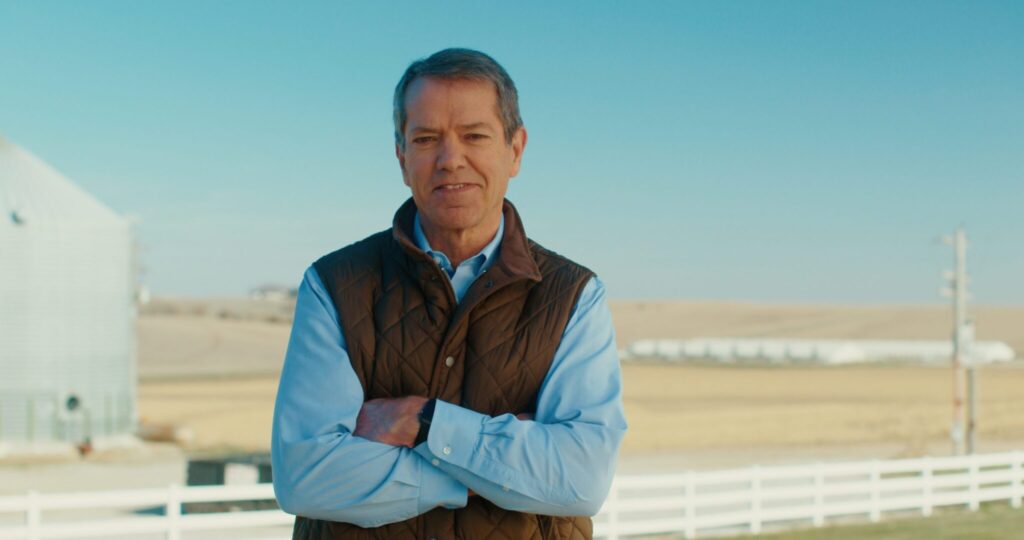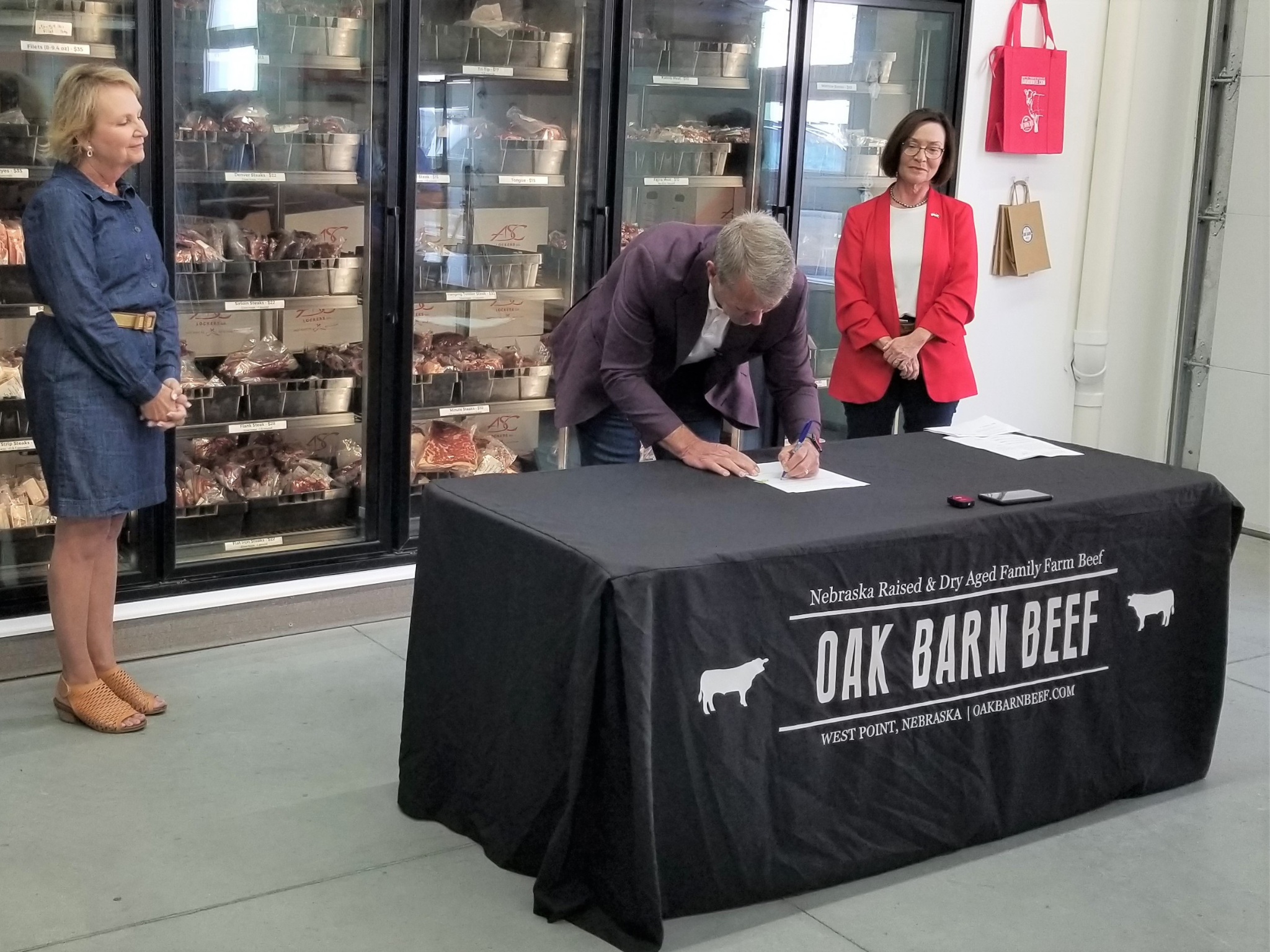Months After Its Governor Floated the Idea, Nebraska Introduces Bill to Ban Cultivated Meat
8 Mins Read
Nebraska Senator Barry DeKay has introduced a bill to ban cultivated meat in 2025, months after Governor Jim Pillen signed an executive order to take this action.
Editor’s Note: This article was amended on 17 January 2025 to reflect that the bill has been introduced. Our previous reporting focused on Governor Pillen signing an executive order.
Despite Ron DeSantis’ Florida being sued for banning cultivated meat, his Nebraskan counterpart remains unfazed, initiating a “a full-blown attack on lab-grown meats and fake meat”.
Those were governor Jim Pillen’s words in August, after signing an executive order putting several restrictions on cultivated meat, and announcing his intention to ban these products in this year’s legislative session.
Now, Senator Barry DeKay has brought forward a bill to keep cultivated meat from being manufactured, distributed, or sold in Nebraska, requiring these proteins to be labelled as “adulterated food products” under the Pure Food Act.
“There are clear, recognised benefits of meat as a source of protein. It is uncertain whether manufactured meat protein is a substitute for natural meat sources as essential dietary needs. I question elevating lab meat to a level of equivalency with real meat,“ claimed DeKay.
“Until or unless there are clear labelling rules that adequately disclose that cultured meat is not real meat, its sale allows lab meats to unfairly benefit from industry investments in marketing and production,” he added.
“What’s more, this industry is supported by organisations that want to do away with animal production in Nebraska and the United States. This is part of the process that we’re going to go through to make sure our way of life, our livestock, and our product that we can put on the dinner table stays intact going forward.”
Pillen, meanwhile, did not mince his words. “It’s important we get on the offense so that Nebraska farmers and ranchers are not undermined. Our job is to protect consumers, grow agriculture and defend agriculture,” he said.

Nebraska governor takes jibe at Bill Gates
The effort goes back to August when Pillen introduced the executive order at Oak Barn Beef, a family-owned meat shop in West Point.
The governor was flanked by the owner of the store, a livestock farmer running for office, and the head of the state’s agricultural department (whose family owns a beef farm), when he approved three measures to protect animal agriculture from the “extraordinary, crazy views out there that there’s going to be different ways to feed the planet”.
And he took a jibe at Bill Gates, who has invested in a number of alternative protein companies, including California’s Upside Foods, the plaintiff in the lawsuit against Florida. “There’s a guy that made some money in building computers. He needs to stay in the computer space and knock this stuff off thinking that he’s going to promote lab-grown meat. He’s lost his brains,” said Pillen.
“We’re being proactive and making sure that silly things aren’t happening, because they are happening on the coasts,” Pillen added. Last year, two restaurants – one on each coast – were serving cultivated meat, after Upside Foods and fellow Californian startup Eat Just received approval from the USDA and FDA.
The governor, whose family owns a major pork farm in the state, was very forceful in his wording. “If there are Nebraskans that want to buy lab-grown meat, good for them. They’re just not going to do it in Nebraska,” he said.
Nebraska Secretary of State Bob Evnen received and signed the executive order in August, officially putting it into effect. And now, DeKay has followed through on the intention to outlaw cultivated meat.
How Nebraska’s executive order stifles cultivated meat

Pillen announced three separate measures to block the progress of the cultivated meat industry. First, he has prohibited state agencies from procuring these proteins
Then, he has mandated state contractors to ensure they don’t “discriminate against natural-meat producers” in favour of alternative proteins.
And finally, he’s asked the agriculture department to make a rule that requires any cultivated meat sold in stores to be clearly labelled separately and placed away from what he called “real meat”. For the record, cultivated meat uses cells from real animals, so it is ‘real meat’ – just, you know, without the slaughter and the pollution and the land use and the water consumption.
Sherry Vinton, the aforementioned director of the agriculture department, said her agency will develop standards to determine when alternative proteins – including plant-based meats – are being falsely labelled or misadvertised. If that sounds familiar, it’s because it is.
“Without these regulations, people can be misled, they can be deceived into buying a product that they didn’t intend on buying,” she said. Some would say that’s insulting people’s intelligence.
“We are going to get very aggressive and make sure Nebraskans are not going to get confused by how meat is labelled,” Pillen said. “People are not going to be able to come into Nebraska and sell product that has meat on it that’s not meat.”
The executive order suggested that blended meats – which combine conventionally raised meat with plant-based ingredients or cultivated cells – “have the potential to confuse consumers”.
The document also included a bogus claim that cultivated meat’s climate footprint is “significantly higher”, likely from a widely panned UC Davis study from 2023, which has become the go-to root of misinformation around cultivated meat.
But to the contrary, peer-reviewed research has shown that when produced using renewable energy, cultivated meat can account for 92% fewer emissions, 94% less air pollution, and 90% less land use than conventional beef. Another study estimated that a shift to cellular agriculture combined with green energy could cut annual emissions by 52% and reduce the amount of land used by traditional farming methods by 83%.
A familiar – and tired – rhetoric

Pillen said that 95% of livestock producers in Nebraska are family-owned, and that he wants to keep it that way. This is the same rhetoric used by DeSantis as well as Alabama governor Kay Ivey, whose state has also banned cultivated meat (which will come into effect on October 1).
Nebraska’s lawmakers are aims to follow in his fellow Republicans’ footsteps. The governor promised to reciprocate this legislation in his state in May – when the bans by Florida and Alabama were announced.
“The fake-meat, petri-dish-meat folks, they’re not going to have a place in Nebraska, just mark that down on your calendar,” he said at the time. “It’s time for us to roll up our sleeves and fight and defend Nebraska, and that’s what we’re doing.”
In August, when signing the executive order, Pillen said he’ll ask policymakers to propose and prioritise a ban on cultivated meat next year. “We can etch it in stone so nobody has a chance,” he suggested, calling these proteins “an attack on our values”.
“We are the beef state,” he added. The problem is, agriculture is the largest source of Nebraska’s emissions, contributing to 42% of the state’s climate footprint, according to the US EPA. And beef production alone accounts for 55% of this share, and 23.7% of the state’s overall emissions.
That seemingly doesn’t faze Pillen. “Nebraska farmers and ranchers, like those here today, are committed to producing the best food products anywhere,” he said. “We feed the world, and we save the planet more effectively and more efficiently than anybody else, and I will defend those practices with my last breath.”
But this idea that cultivated meat is a threat to farmers is a fallacy. As Andy Jarvis, director of the Bezos Earth Fund’s Future of Food scheme, told Green Queen in June: “Everyone gets kind of very nervous about cultivated [meat]… thinking that it’s completely detached from farming. Well, the [culture] media are sugars, and all sorts of minerals and things that are coming from crops, and they’re farmed goods.”
He added: “So this is not an anti-farmer sector; this is a sector that is using farmed products in new ways. And generally using farmed products that are more profitable and highly sustainable in the way they’re produced.”
Nebraska leaders miss the irony

Lawmakers in Arizona, Kentucky, Iowa, Michigan, New York, Wisconsin, Pennsylvania, Tennessee, Texas and West Virginia have all introduced similar proposals to thwart cultivated meat. As Upside Foods CEO Uma Valeti put it, these types of bans are “a harbinger of what might come when a small set of people try to make laws and rules” on what Americans can eat.
So it makes it even more depressingly funny that Jeanne Reigle, the legislative candidate supporting Pillen at the signing, said – completely unironically – that what keeps her up at night and makes her fear for American children’s future is that the “government could get involved and have more control over this new so-called ‘food'”.
As for Pillen, it’s unclear whether he really feels so deeply about this issue, or it’s more a PR stunt – after all, it’s become almost fashionable in Republican states to restrict new businesses hoping to find a way to feed America when meat inevitably goes into short supply. Given Republicans’ staggering lack of belief in climate change or willingness to embrace cultivated meat, this is nothing new.
But the Nebaraska governor wants it to be. He wants you to know that this is “a big deal”. Whether a ban actually happens – or any such bills die down eventually – only time will tell.
Should Pillen really be focusing on products that have never been sold in Nebraska and wouldn’t have for quite a few years anyway? Or should he be putting his energy into reducing the dangerously high nitrate levels in his hog farm’s water supply, which would also protect the health of the farmers and consumers he says he cares about?
I’ll let Nebraskans decide (because he won’t).



